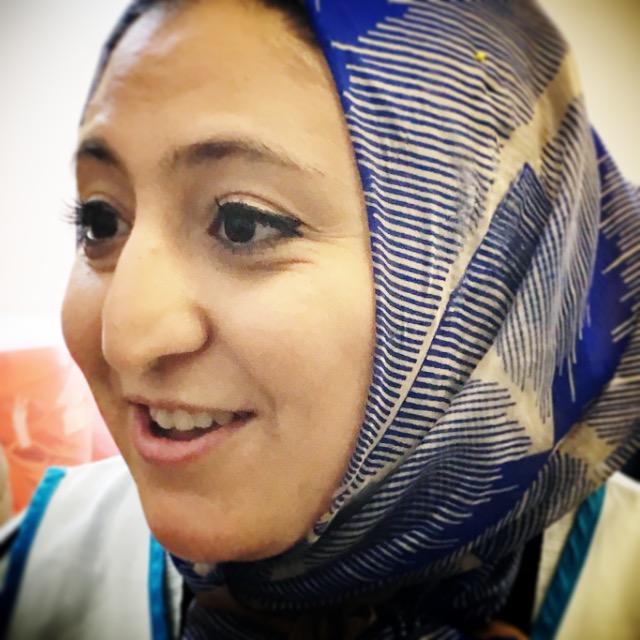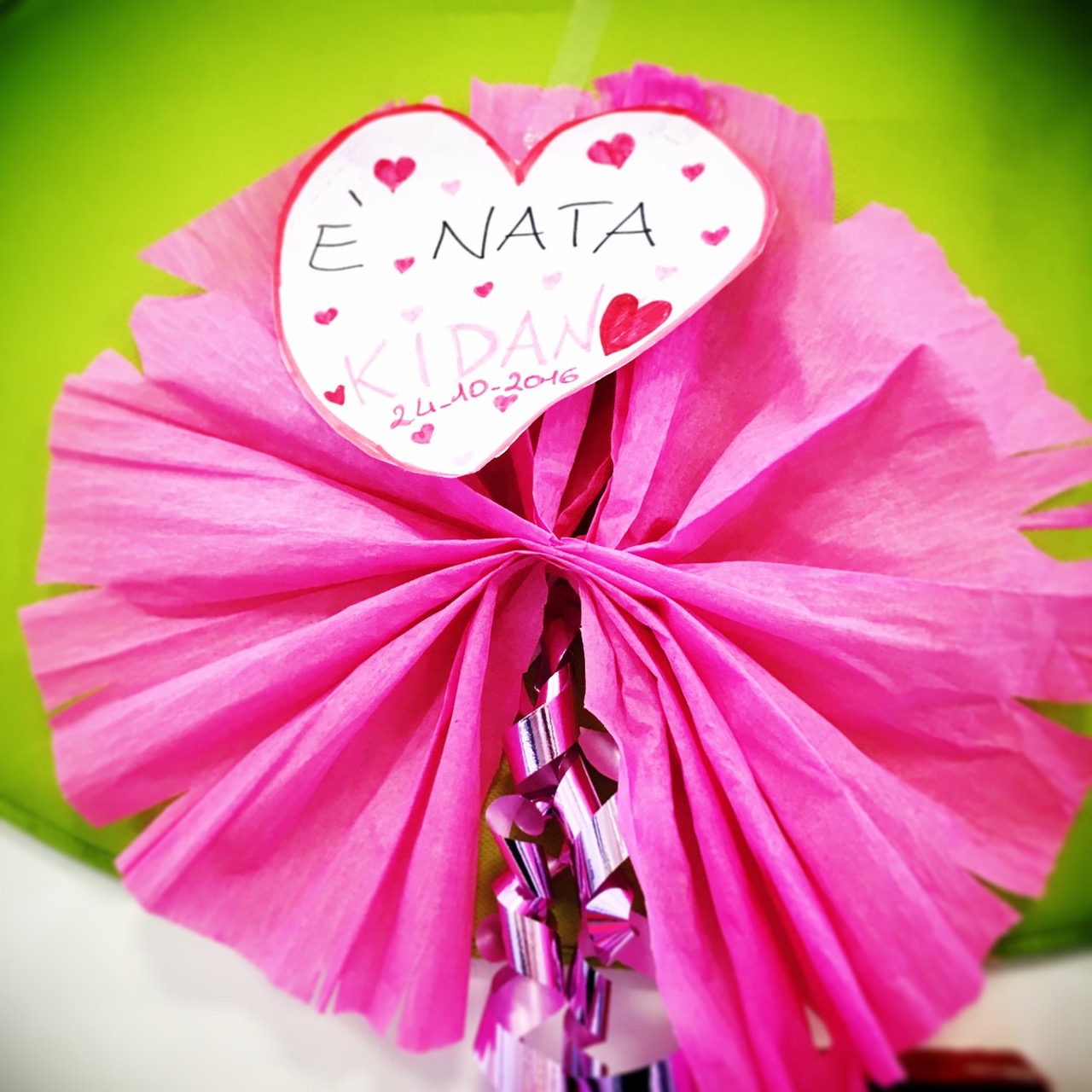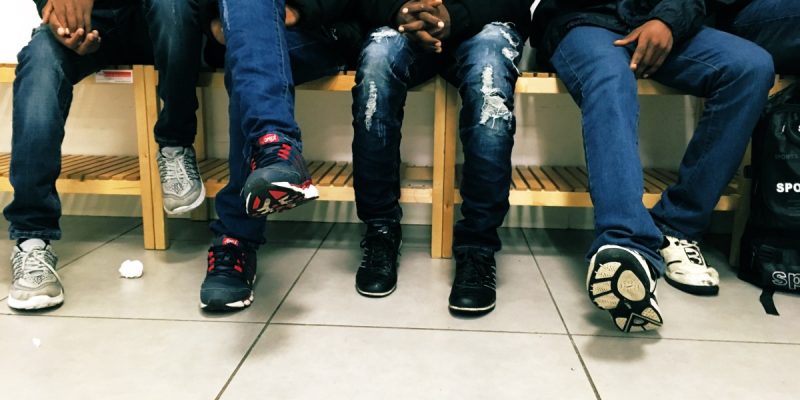“You need to have lived a little to understand what these people have gone through,” Gianluca had told me at the old hub. He’s a volunteer with a white beard who used to sleep on the floor with two cell phones next to him, “one for each ear”, in case he got a call in the middle of the night to go and find someone who had got lost. Nowadays Gianluca sleeps in a trailer parked in front of the new hub on Via Sammartini, but the young Eritreans passing through town are still getting lost.
Further south along the old city walls, Porta Venezia is the neighbourhood where everyone in Milan learns how to eat Eritrean food, and where, since the 1970s, many Eritreans have become Milanese citizens. The country’s independence in 1993, after decades of armed conflict, only seems to have brought fresh oppression. President Isaias Afewerki, former leader of the independence movement, has starved his country, eliminated dissidents, suppressed free media, instituted censorship and mandatory national service for men and women and banned foreign travel. The government employs informants, and there are reports of people being tortured and disappearing. Eritrea has 5 million inhabitants, and according to UN estimates, 5,000 attempt to flee the country every month.
The first thing many Eritreans try to do upon arriving at Milan Central Station is to get to Porta Venezia, on foot or by public transport, and away from the hub. Silvia Panzarin from Project Arca explains that it is not because they have relatives or friends in Porta Venezia, “but because they know they will find someone who speaks Tigrinya there.” Reema, a language mediator, says that having someone who speaks your own language is even more important than eating, sleeping or getting a pair of shoes. Therefore, Project Arca has created a mobile unit that operates in the streets around Porta Venezia, informing migrants that they can get help at the hub. There they can rest for the first time after months, even years, of travelling and oppression. Most of them arrive in buses from the places where they disembarked in the Mediterranean; others come in trains or on their own. First they are registered, a procedure that has nothing to do with the identification they went through upon arrival in Italy, during which they also had to choose where to go and whether they wanted to seek asylum. At the hub, the migrants can give whatever name they like, no questions asked, and, after a phone call, they are given a bed at one of the shelters spread throughout the city or, as is increasingly common, at the hub itself.
Every migrant receives two changes of clothes, shoes and a hygiene kit; at the hub, they can rest, eat, wash, receive medical care, speak with an interpreter, recharge their phones, and Skype with family and friends they haven’t spoken to for weeks. In addition, the hub also provides meals for all the satellite centres that don’t have a kitchen. This means that the hub serves up to 2,000 meals a day, three times a day, every day. I have learned to recognize the call at meal times, in the hub and on the streets: “Mangerìa! Mangerìa!”

Inside the hub on a rainy day. Photo: Marina Petrillo
“Working with refugees has changed my life,” says Reema, 29, now a part of the staff. In May 2014 Project Arca was looking for language mediators to help with the arrivals. Reema is Syrian and she speaks perfect Italian. In 2003, her well-to-do family migrated to Italy from Idlib, in northern Syria. So Reema went to high school in Milan; however, when the economic crisis hit Italy in 2009, she went back to her home country. That is, until the spring of 2011.
“The night when everything changed is still branded in my memory,” she tells. “Idlib is a little like Bolzano, and the fighting had not reached us yet. We knew that in the south the government had attacked protesters, but our life had not changed. Then discontentment crept in among the young who saw Iranian mercenaries amassing wealth and privilege on Assad’s payroll. Then a young man was killed and everybody took to the streets. One night in May, we realized that everything was over. After some violent fighting, those who could prepared to leave the city before the gates were sealed. That night you could hear the fighting outside, we had no power or water in the house, not even the moon was visible. We stayed up late, and I remember keeping my little brothers under a blanket to reassure them. Our phone batteries were only at 50%. We called our relatives in Aleppo, where we had another house, and so we were able to find a car to leave at dawn. The young rebels had rented SUVs to protect those who were able to escape. That very afternoon, the army marched into Idlib. We were lucky, we had regular papers, and were allowed to fly back to Italy. We only had to pack our bags. My father had already gotten the tickets ready. First Aleppo, and from there to Malpensa. My aunt had gone to the ministry to get our papers. At the university in Italy, and at the embassy, they were very kind. When we got to Milan, I enrolled in pharmacy school. But I felt terrible. It seemed impossible to look back on our life as traders, on our homes in Idlib where my grandfather kept a trunk full of cash, and now here we were, with nothing to our name, being glanced at with suspicion by our neighbours. My residence permit expires on New Year’s. I’m going to be fine, I’m married now, I have a home and a job, but I know I’ll have to go and speak with a policeman, who’s probably from the South and gets treated as a foreigner himself. It’s still tough. My husband is also a Syrian who grew up in Milan, he’s studying and working as a house painter, and we cook Syrian food at home. The first thing I put in our new house when we moved in was the Syrian flag.”

Reema is from Syria and lives in Milan, working as cultural mediator at the hub. Photo: Marina Petrillo
Like others, Reema also found unexpected pride in the work she put into the hub: “I used to have trouble studying, I was always sad and angry, I felt robbed of something. Then one friend who was already helping out on the mezzanine floor said to me: do you have a couple hours? Let’s go to Central Station, they need people who speak Arabic. I remember that day very well. My dad was sitting on the couch and when he saw me going out asked, as he usually did: when are you coming back, Reema? I was supposed to stay out for two hours, and I came home at ten. Because the truth is, when we got to the mezzanine, it was full of Syrians running from the war, and even if I didn’t know them, it was like being reunited with family. There was a lot of hugging, crying, really powerful emotions: for the first time since I had been back in Milan, I felt at home. I started going there every day, and that enabled me to grow and to heal. I felt useful. At the mezzanine, I worked ten, twelve hours a day with the refugees, I didn’t stop to eat, but I didn’t even feel hungry. Since then, I’ve begun to make one little change after another, one by one, then I got engaged, I got married, and I got hired to work here at the hub. Even now, when I’m at home relaxing, I can’t wait to be here again.”
After the initial phase of identification with her fellow countrymen and women when she first began to help, today she’s in contact with Eritreans, Ethiopians, Somali and Sudanese. “I want to help them,” she says, her large eyes dark and serious, “but of course it’s much harder. First of all, I don’t speak Tigrinya – we have a translator, Ziggy, who came in a boat in 2007 and who speaks English, Tigrinya and Arabic. The other tough thing is that they’re very closed. They are reserved by nature, but they’re also very frightened, they’ve been through horrible things and they can’t trust anyone, you see? On top of this, I’m a woman in a headscarf, and they don’t trust Arabs anymore after what they’ve been through with ISIS in Libya.” Reema took it as a challenge: “Up until then, the only Africans I’d ever known were the domestic workers in Syrian homes. I knew I was prejudiced, and I knew I wanted to treat them as I did my countrymen. I’ve got to know them a little better now. Often, I cannot bring myself to ask what their story is. They say very little, and when they do talk, it’s about their journeys. Their journeys are really scary.”
Reema learned the story of a beautiful Eritrean girl only when she heard her tell it to a British reporter. “You could see that she was keen on dressing nicely, all the time, she wore a miniskirt and she always looked cheerful, and she spoke a little Arabic with me. She had a beautiful smile. At one point, she said her two-year-old daughter had died during the journey, and that she’d had to bury her in the desert. I was shocked.”
Alberto Sinigallia, President of Project Arca, had warned me: “Many of the pregnant women you are about to see are pregnant from their rapists.” This hard, disturbing knowledge stays with me every time I spend some time at the hub. “The truth,” Sinigallia explains, “is that most of the women passing through here were raped in detention centres in Libya before they got on a boat. It’s appalling, and it also speaks to how strong their desire to leave is, because these women know exactly what they’re going to face, to the point that some of them even go through hormone therapy before starting the journey to minimize the risk of pregnancy.” The hub refers them to the Mangiagalli clinic, which provides ER care for sexual assault victims. “I remember a young African woman,” Sinigallia recalls, “who had been assaulted in Libya and had become pregnant. She was travelling to a northern country to be reunited with her husband, but she didn’t dare tell him what had happened; she wanted to keep the baby, but was afraid her husband might repudiate her. She received counselling from the psychologists at the hub, who also helped mediate with her husband, and he eventually consented to the reunion and to her keeping the baby.

The pink ribbon celebrates a birth inside the hub. Photo: Marina Petrillo
It’s a borderline case, but it illustrates the situation well. At the shelter on Via Agordat, here in Milan, all the women are pregnant, and all of them from being raped in Libya.” The shelter for pregnant women who are under international protection is a one of a kind experiment, because there, since June of this year, these young rape victims have been welcomed by the elderly women of a retirement home.
“Fortunately, my coordinator is a woman, Fabiana”, says Reema, “she’s thirty, and she’s very brave. Some nights she only gets two hours of sleep. There was a young Eritrean woman who spoke Syrian because she had been a maid in Syria – she might be in Germany now, I hope she’s doing well. She came here pregnant because she’d been raped, and she told us she would rather die than keep the baby. Some of the girls who have been raped decide to keep their babies. Others arrive with their husbands, and they are pregnant with their first child.” Reema proudly shows me a large pink birth wreath on a green background hanging on the wall. “A girl was born here the other day. A woman who had come with a large group of Eritreans who had disembarked in Calabria. As soon as she got registered, we sent her to the Macedonio Melloni clinic.” The wreath is made out of crepe paper and gift wrap ribbon. “When she gave birth, she still had no idea where her husband was. They’d got separated after they disembarked.”
You can read Part 1 of our report on the Milan hub here
Cover photo: Marina Petrillo
Translation by Francesco Graziosi









